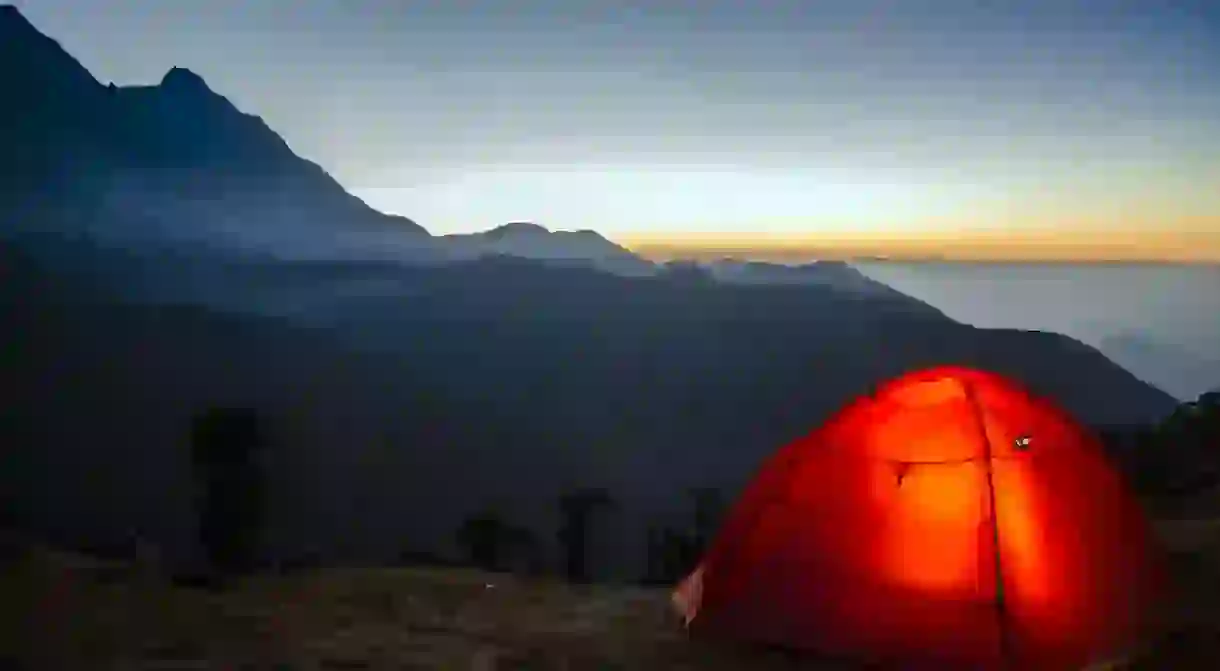The Best Places to Go Camping in Central Vietnam

Central Vietnam is full of lush jungles and beautiful islands along the coast. Take a break from major cities and camp in any of these areas for a night or two. But be warned: You may not want to return to the concrete jungle after spending time in these destinations.
From mammoth caves and mountain passes to serene islands, here are Culture Trip’s top five spots to set up camp in Central Vietnam.
Phong Nha-Kẻ Bàng National Park
Natural Feature

Phong Nha-Kẻ Bàng National Park is known for having the largest and third-largest caves in the world: Hang Sơn Đoòng and Hang Én. While camping inside Hang Sơn Đoòng cave for several days would be a dream come true, those who are interested are typically placed on a two-year waiting list and must pay at least $3,000. Quảng Bình’s government allowed the tour operator Oxalis to organize expeditions into the cave; visitors who want a cheaper expedition with a shorter waiting list can also book an expedition to Hang Én. The park also has more than 300 other caves, grottoes, rice fields and hundreds of karst mountains. Remember to pack long-sleeved shirts, pants and bug spray for this adventure.
Hải Vân Pass
Natural Feature

The Hải Vân Pass is one of the most beautiful locations in Vietnam; its curvy roads veer away from the coast and into the mountains. The pass connects two cities, Da Nang and Huế, and played a crucial role during the Vietnam War by allowing the Viet Cong to transport food and weapons from one end of Vietnam to the other. Travelers can set up camp at the top of the pass near the Hải Vân Gate. Even if you aren’t a morning person, get up early and catch the breathtaking sunrise from the peak. Next, wake up by taking a bath in the nearby waterfall and lagoon.
Trung Lương
Natural Feature

Located 19 miles (30 kilometres) from Quy Nhơn, a city that’s known for its stunning beaches and islands, is Trung Lương beach. Locals love to camp here because it’s easy to set up a barbecue or bonfires in the evening. Snorkeling and other water sports are also available. The only downside is that you may have to share your campsite during peak season; reserve a spot in advance if you want to enjoy this peaceful site by yourself.
Cù Lao Xanh
Natural Feature
Cù Lao Xanh, a small island in Quy Nhơn, is surrounded by turquoise water and greenery. Snorkeling, swimming, beach barbecues and sunbathing are just a few activities you can do while camping here. If you want to avoid storms, do not book your trip during July and August or November through January.
Cù Lao Mái Nhà
Natural Feature
Phú Yên Province has recently become a popular beach destination for locals, but Cù Lao Mái Nhà (the abandoned isle), located in the north of this coastal province, has mostly remained untouched. The east end of the island is perfect for camping, setting up a bonfire, catching fish and grilling some for dinner.
Phú Quý
Natural Feature
Yet another beautiful island, Phú Quý is ideal for those looking to get away from the busy economic hub that is Ho Chi Minh City. About 75 miles (120 kilometres) north of Mũi Né, this island offers a lot to explore. Camp at Cao Cat peak next to Linh Son Temple and don’t forget to catch the sunrise. Rent a boat and paddle to the small islets surrounding the area, including Hon Tranh, Hon Den, and Hon Trung. The water in this area is so clear that you can almost see the bottom.













